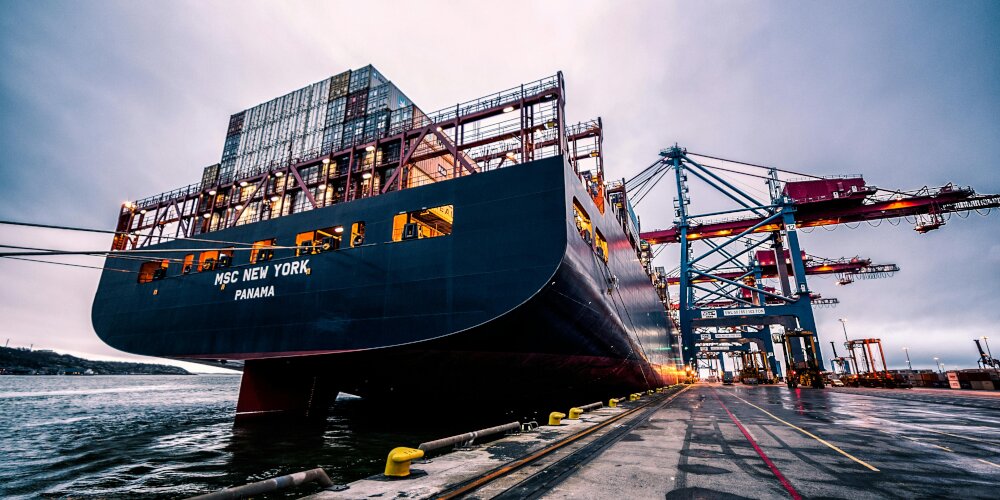Browse our services
Explore how Brookes Bell can help you
Find an expert
Meet our team, find and expert and connect
Contact us
Get in touch, we're here to help

The International Maritime Organisation (IMO) has approved a net-zero framework which will establish legally binding measures regarding greenhouse gas emissions from ships globally, with the ultimate aim of achieving net-zero emissions by 2050.
The IMO net-zero framework will be the first in the world to combine mandatory emissions limits and GHG pricing across an entire industry sector.
Approved by the Marine Environment Protection Committee during its 83rd session, the framework will include a new fuel standard for ships and a global pricing mechanism for emissions.
It is expected that the measures will be formally adopted in October 2025 before coming into force in 2027. From that time, the measures will be mandatory for large ocean-going ships over 5,000 gross tonnage. This is due to these vessels being responsible for 85% of total CO2 emissions from international shipping.
The IMO net-zero framework will be included in a new Chapter 5 of Annex VI (Prevention of air pollution from ships) to the International Convention for the Prevention of Pollution from Ships (MARPOL).
MARPOL Annex VI currently has 108 parties, covering 97% of the world’s merchant shipping fleet by tonnage, and already includes mandatory energy efficiency requirements for ships.
The draft regulations will continue two core measures that shippers will have to comply with:
In addition to the net-zero framework, the IMO will be establishing a ‘net-zero fund’. This fund will be used to collect pricing contributions from emissions. Collected revenues will then be distributed to:
Commenting on the approval of the framework, IMO Secretary-General, Mr. Arsenio Dominguez, said:
“The approval of the draft amendments to MARPOL Annex VI mandating the IMO net-zero framework represents another significant step in our collective efforts to combat climate change, to modernise shipping and demonstrate that IMO delivers on its commitments.
Now, it is important to continue working together, engaging in dialogue and listening to one another, if we are to create the conditions for successful adoption”.
With new regulations continually emerging from the likes of the IMO, it’s vital that you and your vessels are operating compliantly.
Brookes Bell’s Master Mariners can help you do just that.
In particular, our Master Mariners have considerable experience advising shippers on MARPOL-related issues. These include (but, are not limited to); pollution from ships by oil, pollution from ships by noxious liquid substances carried in bulk, sewage, and garbage.
For more maritime industry insights, news and information, read the Brookes Bell News and Knowledge Hub…
47 Nations Back IMO’s GHG Emissions Pricing Mechanism Proposal | IMO Nations Divided Over Shipping Emissions Levy as Key Decisions Loom | Environmentalists Call for Ban on Scrubber Discharge